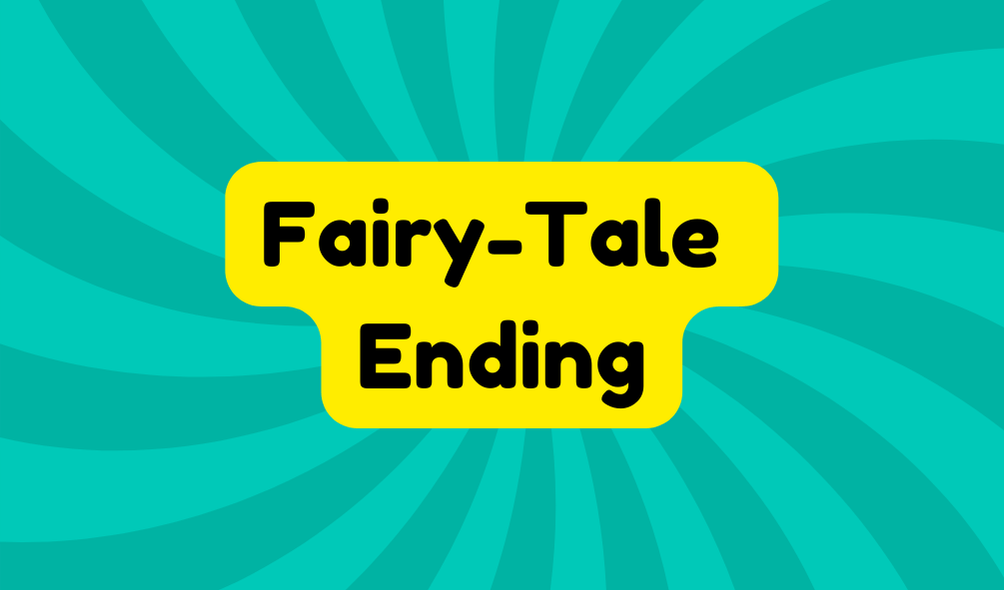A "fairy-tale ending" refers to idealized conclusions often found in stories, promoting happiness and satisfaction. While such endings can be enchanting, they may create unrealistic expectations about real life. Characters frequently overcome challenges only to attain perfect resolutions, leaving audiences yearning for similar outcomes in their own experiences. This notion underscores the difference between fiction and reality, prompting reflection on life's unpredictability. Understanding these themes provides a deeper insight into human desires for ideal conclusions.
Synonyms
When exploring the concept of a "fairy-tale ending," one might encounter several synonyms that encapsulate similar ideas of idealized conclusions and emotional satisfaction. While these alternatives resonate with the charm of a storybook finale, they can also reflect unrealistic expectations. Acknowledging this dissonance is essential for gaining a thorough understanding of narrative outcomes. The following synonyms illustrate this blend of possibilities:
- Happy ending
- Ideal conclusion
- Blissful resolution
- Perfect finale
Each term conveys a sense of joy and completeness, yet adopting a critical perspective may help individuals appreciate the nuances behind such seemingly flawless closures.
Example of Sentences
Among the myriad of narratives, the phrase "fairy-tale ending" frequently surfaces as a descriptor for stories that conclude with joy and satisfaction. These narratives often present an unrealistic view of life, suggesting perfect conclusions and ideal outcomes. Here are some example sentences illustrating the concept:
- The protagonist's journey led to a fairy-tale ending, where all conflicts were resolved.
- Critics argue that relying on such endings creates unrealistic expectations.
- In classical literature, characters often experience a fairy-tale ending after overcoming insurmountable challenges.
- The filmmaker crafted a narrative that culminated in a fairy-tale ending, leaving audiences enchanted yet questioning its authenticity.
Origin
The origins of the phrase "fairy-tale ending" reveal a fascinating evolution in language and cultural storytelling. Emerging from historical references in the 17th century, this phrase encapsulates the desire for idealized conclusions in narratives. Initially noted in the works of John Swan, the term gained traction by 1854, showcasing its cultural significance. Such endings, often simplistic and unrealistic, evoke an alluring sense of happiness, yet can also introduce skepticism regarding their practicality in real life. The concept reflects humanity's yearning for perfection while simultaneously challenging the audience to recognize the difference between fiction and the complexities of existence.
Collocations
While many people cherish the notion of a "fairy-tale ending," a closer examination of its collocations reveals a more nuanced understanding of this phrase. This phrase embodies not just a simplistic conclusion but also reflects societal desires for ideal outcomes. It invites skepticism regarding its practicality. Common collocations associated with "fairy-tale ending" often include:
- Happily ever after
- Picture-perfect scenario
- Dream come true
- Perfect resolution
These expressions indicate a yearning for happiness but may lead to unrealistic expectations. In reality, narratives often unfold in unexpected ways, challenging the simplistic notion of living "happily ever after."
How to Use in Everyday Language
Using the phrase "fairy-tale ending" in everyday language can illustrate both a desire for ideal outcomes and a critical perspective on the nature of happiness. This expression can be applied in real life scenarios where outcomes seem too perfect or unrealistic. By examining storytelling techniques, users can gain insights into personal aspirations versus reality.
| Context | Usage Example |
|---|---|
| Relationships | "Their story ended like a fairy-tale ending." |
| Career Aspirations | "She hopes for a fairy-tale ending in her job search." |
| Life Challenges | "Not everything has a fairy-tale ending." |
| Film/Books | "Many films promise a fairy-tale ending." |
| Personal Growth | "Life isn't always a fairy-tale ending story." |
Why Is It Still Relevant Today?
Fairy-tale endings remain relevant in modern culture, serving as both an ideal to aspire to and a lens through which to examine the complexities of real life. Their cultural significance is amplified through modern adaptations, which often retain core narratives while challenging traditional conclusions. Yet, the glorification of flawless outcomes can obscure reality, promoting unrealistic expectations. As narratives evolve, the allure of a perfect ending serves as a reminder of society's desire for resolution amidst chaos. By critically engaging with these narratives, audiences can appreciate their beauty while recognizing the nuanced truths they often overlook, encouraging a more balanced view of life.







